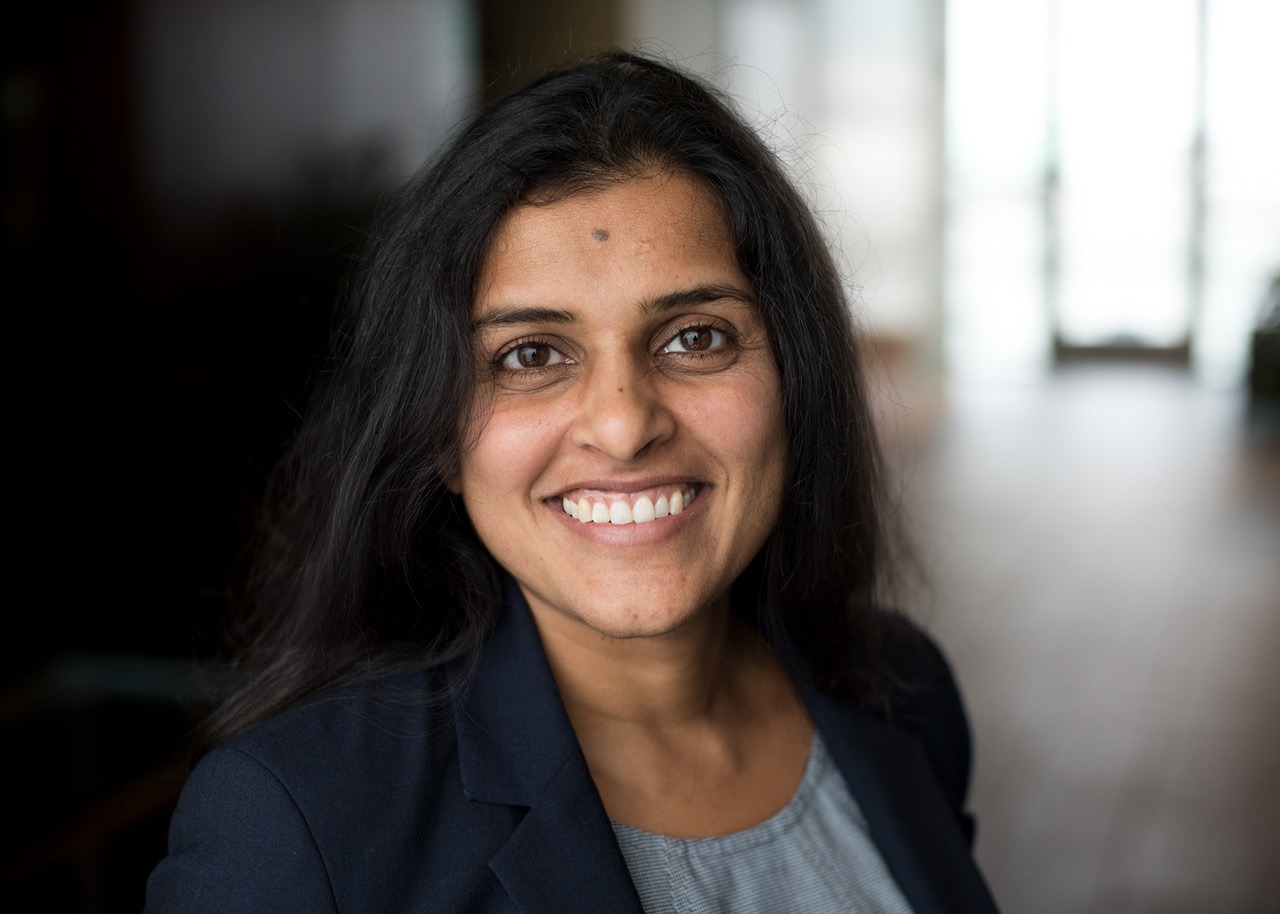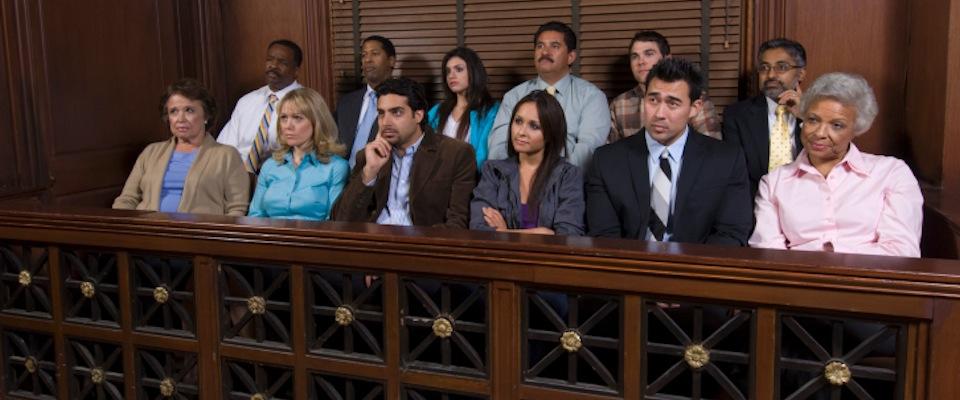Last December the jury in the defamation case against former Trump attorney Rudy Giuliani slapped the former mayor of New York City with a whopping $148 million in damages for making false fraud allegations against two Georgia poll workers, Ruby Freeman and Wandrea ArShaye “Shaye” Moss.
Giuliani appealed the case but not before declaring bankruptcy.
While the jury ultimately delivered the penalty, it was attorneys like Berkeley Law alum Shalini (SHAH-lin-ee) Goel Agarwal, J.D. ’06, and her colleagues at the nonprofit United to Protect Democracy, who did the hard work of leading them there. The outfit describes itself as a cross-ideological nonprofit that fights authoritarianism by working to preserve fair elections and countering disinformation.
Now, Agarwal is one of Protect Democracy’s attorneys representing Freeman and Moss in a pending, related defamation lawsuit filed against The Gateway Pundit, a far-right media website. The suit alleges that the outlet, which publicly identified the women and labeled them as “traitors,” knowingly published false information about the workers’ election activities.
Agarwal says the case “gets at the heart of our democratic process and making it safe for everyday citizens to help make that process work and not be villainized because they are helping to process ballots. Our clients faced some really horrific abuse online and threats to their safety that you should not have to endure just because you are helping your neighbors to vote.”
Agarwal grew up 75 miles southeast of Atlanta in rural Eatonton, Georgia, birthplace of The Color Purple author Alice Walker. Plantations and factories thrived there before the Civil War.
“It was a very black and white town,” said Agarwal, recalling de facto–segregated schools and the railroad tracks that literally divided poor blacks and wealthier whites. “It’s not a stretch to say that political power didn’t extend to black folks in the town for a long time.”
As a member of one of Eatonton’s few immigrant families (her parents are from India), Agarwal observed the inequities from an outside perspective.
“Race and inequality was definitely something I was keenly aware of from a young age. That experience inspired me to want to work on civil rights,” she said.
The path to the law wasn’t a straight course, however. After earning an English degree at Vanderbilt, she taught at a private high school on the East Coast (where, she says, parents told her “they had paid a certain amount of tuition for their child to get a certain kind of grade”).
Disenchanted, she left teaching and moved to Berkeley to study classical Indian dance. “I eventually performed and taught for a few years and then I realized over time, this is good, but this is probably not my strong suit,” she said. “My strong suit is to try to use my analytical brain on social problems that I care about.”
That led to Berkeley Law and, eventually, back to her southern roots. Agarwal said being in a “hub of progressive activism” helped her realize “that the South is where some of that activism is most sorely needed.”
Agarwal eventually went to work at the ACLU of Florida and the Alabama-based Southern Poverty Law Center.
At the ACLU, she won a case that limited Florida’s efforts to drug test all state employees and was part of a team that blocked the state’s attempts to drug test residents applying for welfare.
(Agarwal’s husband, Amit Agarwal, a private attorney in Tallahassee, is the former solicitor general of Florida and a former assistant U.S. attorney in Florida. He previously clerked for conservative U.S. Supreme Court Justice Samuel Alito. Shalini said she and her husband have never been on opposing sides in court.)
At the Southern Poverty Law Center, Agarwal supervised a team that sued Florida prisons. The center exposed that the state kept 10 percent of its inmates locked in solitary confinement, twice the national average.
Agarwal also led a team that persuaded a judge to order the federal Department of Homeland Security to provide ways for immigrants in remote detention centers to get access to attorneys.
Agarwal’s focus at Protect Democracy has primarily been on First Amendment issues, where government censorship targets marginalized communities.
She is helping press a lawsuit against the Escambia County School District in Florida for removing and restricting books from public school libraries—primarily books by or about people of color and/or LGBTQ people. Thousands of books were banned, which greatly alarms Agarwal. “Schools are laboratories of democracy. They are places where we are teaching the next generation voters. We are exposing them to different viewpoints.”
Ultimately, she says the case is “about making sure that we’re not erasing the experiences of a whole lot of students who are probably in the Escambia County public schools from their libraries, like students of color, but also students who are not students of color but who would like to read about people who are different from themselves, should not be deprived of that.”
Previously, Agarwal led a Protect Democracy lawsuit that challenged Republican Florida Governor Ron DeSantis’s “Stop Woke Act,” which aimed to restrict how race and sex can be discussed in schools and workplaces, but has been largely blocked in courts. In March, a federal appeals court upheld a ruling that the law is unconstitutional. Rightly so, said Agarwal, who called the law “blatantly viewpoint-discriminatory.”
Asked if she ever tires of the fight, Agarwal sounds an optimistic note. “I think that at the end of the day, we can’t lose hope. These are really basic foundational principles for American democracy. I think that it is critical that we all dig in and say, this constitutional document has value. There are these amendments that have meaning,” she continued. “And it’s up to us to give force to the language in those amendments.”






















